Posted by
Campbell
at
Monday, May 01, 2006
The following review was sent by my good buddy, and New Orleans native, Michael Pemberton. I find this review to be unbelievably important on so many levels. I think of the power of music, the hope that still breaths throughout New Orleans and the responsibility we have as fellow-citizens to help bring back this wonderful city.
I'm way beyond being objective about Springsteen,
but this was truly one of the most fantastic shows I've ever seen by
anybody. On any given night I'll put Bruce up against anyone in the world
as a live performer, but give him something to prove and he's nothing short
of phenomenal. Not only was he debuting a new band with a very different
sound and a new set of songs, but he was doing it specifically for New
Orleans, with all eyes on him. Most importantly, this was probably the
first time in 30 years he was playing in front of a crowd that wasn't
stamping at the bit to adore him. I really wondered how he would go over
with the thousands of sun-burned, stoned, drunk as hell Jazz Festers who
spend the whole Festival camped out by the big stage no matter who is
playing, slamming case after case of overpriced Miller Genuine Draft.
Halfway through "Mary, Don't You Weep" it was clear that he wasn't going to
have any problems. The sound was HUGE, Bruce was more animated then I've
seen him in 20 years, and everything was just...perfect. If anything Bruce
was over-pumped, I thought he oversang a few songs near the beginning. He
remains a master at pacing, I was worried that going into "Eyes on the
Prize" would kill the crowd, but if anything it brought things up even
further. By the end the crowd was more attentive than I ever thought a huge
Jazz Fest crowd could be. The ultimate highlight was a fantastic version of
"My City of Ruins." This was one of those moments when the crowd and
everything else fades away, and it seems like there's nothing but you and
the music. This guy coming to my town and playing this song at this
particular time in our city's history and in my own personal history...it
was extremely powerful. 90% of the crowd hadn't heard the song before,
but they were still stone-silent as he started, you could tell people were
really listening, and they started to rumble to life as the song went on. By
the time it got to the "...with these hands" and the final "Rise up!", it
was overwhelming. There may have been some dry eyes scattered around the
crowd, but mine weren't among them.
At that point it was well after 7pm, and Jazz Fest never runs late, so I
figured that was it. But I guess you don't kick Bruce offstage, because he
went on for another 30 minutes. I'd heard that he had ended some of his
rehearsal shows with "When the Saints Go Marching In," which I was dreading,
because if there is one thing New Orleans doesn't need is yet another
version of "Saints." Bruce's soft, acoustic version was a revelation, he
brought it back to the personal prayer that it had been originally. Not
only that, but he sang two verses that were part of the song originally but
that are rarely heard any more, and that fit the moment perfectly:
(first verse)
We are traveling in the footsteps
Of those who've gone before
And we'll all be reunited
On a new and sunlit shore
(last verse)
Some say this world of trouble
Is the only one we'll see
But I'm waiting for that morning
When the new world is revealed
It wasn't a perfect show (some of the songs went on too long, his reworking
of "Open All Night" was clunky, and he didn't play "Erie Canal," my favorite
off the new record), but it was darn close. I really hope all of you see a
show this year that means as much to you as yesterday's show meant to me.
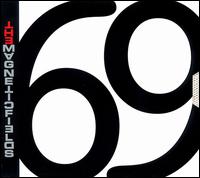


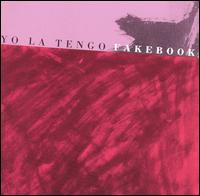
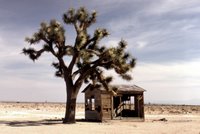 I've seen so few places in my life that it's downright embarassing. I guess I've seen a good portion of the United States. In addition to living in NYC, Boston, NJ and now San Francisco, here are a few cities I've visited that spring to mind: Austin (loved), LA (some good, some bad), Seattle (short stop but liked), Minneapolis (one of my favorite cities), Chicago (good time), Philadelphia (LOVE), Orlando (HATE), St. Louis (fun time), New Orleans (blast), Las Vegas (eh), Cincinnati (most underrated city in the US), Cleveland (yuck), Raleigh (pretty fun), Jacksonville (yawn), Providence (not bad), Myrtle Beach (rednecks), and some others that aren't springing to mind.
I've seen so few places in my life that it's downright embarassing. I guess I've seen a good portion of the United States. In addition to living in NYC, Boston, NJ and now San Francisco, here are a few cities I've visited that spring to mind: Austin (loved), LA (some good, some bad), Seattle (short stop but liked), Minneapolis (one of my favorite cities), Chicago (good time), Philadelphia (LOVE), Orlando (HATE), St. Louis (fun time), New Orleans (blast), Las Vegas (eh), Cincinnati (most underrated city in the US), Cleveland (yuck), Raleigh (pretty fun), Jacksonville (yawn), Providence (not bad), Myrtle Beach (rednecks), and some others that aren't springing to mind.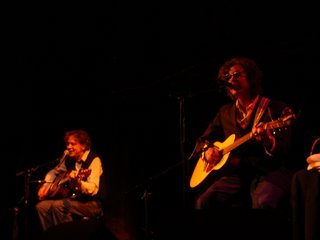 Seriously, does it get any more beautiful? When it comes to music, the unison of Gary Louris and Mark Olson elicits perhaps the most beautiful sounds on Earth. I've heard thousands of artists harmonize, but none blend like Louris and Olson.
Seriously, does it get any more beautiful? When it comes to music, the unison of Gary Louris and Mark Olson elicits perhaps the most beautiful sounds on Earth. I've heard thousands of artists harmonize, but none blend like Louris and Olson. 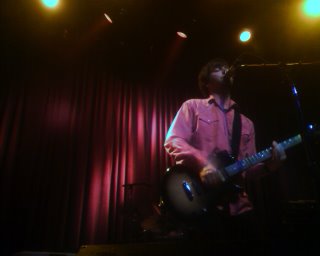 Back in 1995, while wading through my junior year in college, I was desperately trying to figure out what to do with my life. I was majoring in sociology, taking a lot of black studies courses, and thinking that my career would take me to a possible phd in sociology. Though I was passionate about this line of studies, there was something missing. I was looking for something that would take me to that next level. Something that would grab my soul and clear up my career uncertainty.
Back in 1995, while wading through my junior year in college, I was desperately trying to figure out what to do with my life. I was majoring in sociology, taking a lot of black studies courses, and thinking that my career would take me to a possible phd in sociology. Though I was passionate about this line of studies, there was something missing. I was looking for something that would take me to that next level. Something that would grab my soul and clear up my career uncertainty.